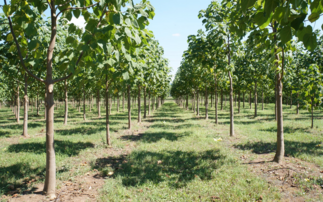London Stock Exchange Group warns divergence between UK and EU emissions allowances could 'widen out to 2030' without substantial reform of UK ETS
The UK Emissions Trading Scheme (UK ETS) saw its value drop by 22 per cent in 2023 in response to a weakening green policy environment that fuelled concerns the supply of carbon allowances could be higher than previously expected, new research has shown.
Data published yesterday by the London Stock Exchange Group (LSEG) reveals the UK accounted for roughly four per cent of the value global carbon market in 2023.
While the volume of credits traded on the UK ETS increased by 19 per cent year-on-year, the overall value of the market dropped by 22 per cent.
In an accompanying briefing note, LSEG said the UK's carbon market had been impaired by policy decisions taken by Prime Minister Rishi Sunak in the early autumn.
"UK environmental policy diverged from the EU sharply in 2023, with Rishi Sunak's government walking back a number of green pledges and pursuing a much less ambitious ETS reform agenda, all of which had a decidedly bearish impact on UKA prices, particularly over the second half of the year," it said.
Prices for UK emissions allowances spent much of 2022 at a premium to their EU counterparts, but tumbled at the end of last year to result in "sharp discounts of more than €25/t", the data shows.
LSEG said it expected the discount between UK and EU allowances "to widen out to 2030" if the UK ETS is not reformed to tackle an oversupply of credits on the market.
The divergence between UK and EU prices could also mean UK exporters are slapped with additional CO2 levies when the EU's Carbon Border Mechanism comes into force.
Elsewhere, LSEG's analysis notes the European Union Emissions Trading Scheme (EU ETS) remains the largest global market by a long way, accounting for 87 per cent of the value of the global carbon market in 2023.
After rallying to pass the €100/t mark in February, prices for EU ETS allowances remained elevated through to the third quarter of the year, before a weak winter gas market and economic headwinds prompted prices to fall in final quarter of the year.
LSEG noted that the overall volume of carbon allowances traded on the market had fallen by two per cent in 2023, while its value had inched up by two per cent.
Despite falling prices that resulted from a continued oversupply of credits and reduced demand across most markets, the analysis confirms the overall value of global carbon markets grew to €881bn in 2023.
China and the US were the exceptions to the trend, with prices in China hitting record highs in both the listed and over the counter (OTC) markets ahead of a December deadline for compliance markets, the analysis shows.
Elsewhere, the briefing notes that Voluntary Carbon Markets had a "rough year", with prices tumbling to below the £1 per tonne of CO2 mark on many standardised instrument contracts amid ongoing concerns about the integrity of avoided deforestation projects in the Global South.
"Prices fell across most carbon markets in 2023 after a banner year in 2022 amid sluggish global growth, political challenges, and receding volatility in the global gas market," said Paula VanLaningham, head of carbon research at LSEG.
"The two notable exceptions to this trend were in China and the US, where prices increased. In China, the second compliance deadline saw a surge in buying interest in the second half of the year, prompting prices in both the listed and OTC markets to hit record highs. Elsewhere, carbon prices fell - often heavily - amid continued oversupply and demand destruction."
Governance and standards bodies across the Voluntary Carbon Market are working to restore confidence in the sector and bolster demand through the adoption of a series of new standards designed to provide more robust evidence projects are delivering promised emissions savings.
Want to understand what is going on at the cutting edge of sustainability? Check out BusinessGreen Intelligence - the premier information for professionals focused on the UK's green economy.









